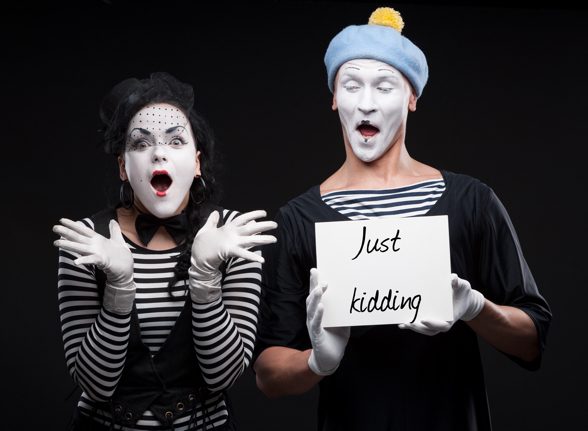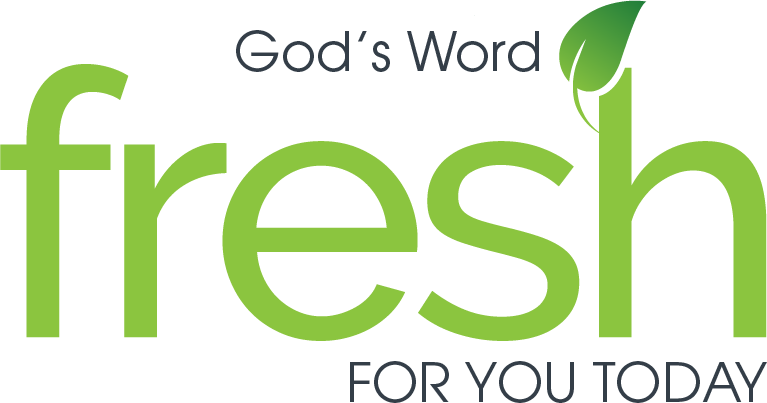Episode 1. What's in a Face

Listen to the radio broadcast
Download audio file
People often put on different faces to suit their audience. And when that happens, it gets quite difficult to know what’s really going on inside. And that can lead to misunderstandings and …
People often put on different faces to suit their audience. And when that happens, it can be quite tricky to know what’s really going on inside. And that can lead to misunderstandings and conflict.
Faces are a funny thing. Have you ever thought about it? Most of what we know about a person comes from their face. The face includes 23 different surface landmarks and non-verbally, it’s the most expressive part of the human body. The face is every person’s visual trademark; our facial expressions are controlled by 53 different muscles in the head, face and neck.
In an instant, without thinking, we can smile, pout, frown, wink, let’s face it our face is the window to who we are, but sometimes people put on a face. We can get pretty good at hiding what’s really going on inside by pretending something on the outside that doesn’t match with the inside. So what you see isn’t what you get and when that happens, life gets a bit confusing. So what faces do we wear?
Its interesting when you think about it, the face, I mean its a physical thing, I see my face for a few minutes each morning when I look into the mirror, in fact for most of human kinds existence almost 99% of that time people have only been able to see their faces in water or in a reflection in something natural because of course mirrors are a very recent invention, to see ourselves with a clarity that we can see ourselves in the mirror today so most of the time, for most of human history, people have spent time looking at other peoples faces but not a lot of time looking at their own faces.
So the face is this physical thing and when we think of a person we tend to think of their face. If I say to you, “think about your Mum.” You’ll think about her face. “Think about your Dad.” You’ll think about his face. Think about this friend or that friend, your wife or your husband and immediately we picture their face.
It is truly each person’s visual trade mark but the face is also a term that we use for what a person says or does on the outside. We know that expression, “He’s two faced.” Which means he says one thing but does another, he presents this face to this person and another face to another person and the reason that that’s a problem is because, by and large, the face is supposed to mirror what’s going on in the heart.
So if we’re happy – we smile; if we’re sad – we cry; if we’re angry – we look cross; if we’re content we have this relaxed look on our face and by that, other people can look at our faces and they know what’s going on inside us. That’s the way it’s supposed to work, that’s the theory.
The face is the mirror to the heart, we want and we expect, what’s known in the computer industry as WYSIWYG, What You See Is What You Get because that way we can figure out people, we can look at their face and get an accurate picture of the territory of their hearts. We need some balance around that too of course, look at anger and aggression; some people that we know just flare up at the smallest thing.
I can think of one person that I know, as soon as he doesn’t like something, as soon as he’s uncomfortable, the face goes and you can see this whole contorted thing, most of us would like people like that to be a bit self controlled, “come on, chill out, relax. Hold on to it for a bit, calm down!” So we don’t want every expression happening on every face all the time.
You know that saying, “He wears his heart on his sleeve.” Well we can get pretty sick of people like that because they are always gushing their emotions out. So we do expect some balance but, on the whole, what we really hate is when people deliberately or even unknowingly put on a face that gives us the wrong impression about what’s happening in their hearts.
You know what I mean, maybe you work in a workplace and you go to a meeting and people are talking at the meeting and everything’s sweetness and light and afterwards, people talk about your or people talk about another person and you think, “that is so two faced.” It’s a hurtful thing to do, to wear a face or a mask for one person and then show something totally different to another person and talk behind their backs.
I have a counsellor friend and she talks about the fact that people come to her and they present with something that looks like a problem, that’s the outer problem, the face, the thing that they know and recognise but often the outer thing is really only a symptom of the real problem which goes much deeper.
So often our behaviour has a disconnect with our hearts. If we do that deliberately it’s deceptive, if I come to you and smile and tell you how wonderful you are and I go to another person and say, “Boy, that’s a turkey over there.” Well that’s deliberate, that’s deceptive and it’s wrong. A lot of people do that, a lot of Christians do that, it’s wrong, its a sin, its not what we’re meant to do.
People can unknowingly do that too and this week on ‘A Different Perspective’, over the next four days, we’re going to look at some of those different faces and masks that people put on. Why are we talking about this stuff? Because life is for living, life is for abundance isn’t it? We all get this one chance on this earth, one chance; it’s not a stage rehearsal. It’s live, its real and when we’re dealing with people, we often haven’t learned the skills that we need to have, not only to know that we should have a good life but how to have a good life and reading a persons heart and understanding sometimes that their face doesn’t present what their heart is feeling.
Its a really important life skill that we need to learn because if we don’t, we end up with mistaken identity, if we don’t understand sometimes that this persons face does not equal what’s in their heart, we end up with tension and aggression and misunderstanding and hurt and anger and ruin relationships, really important things for us to learn and understand.
Come on, what about your life? What about just this last week, this last 7 days, what tensions have you had? What arguments? What stresses? At home with husbands and wives and families and work, with a work colleague, who are the people that you’ve been struggling with just this last week?
We’re going to look at four faces over the next four days that people put on. The first one is the face of disapproval. It’s tough because we want people to approve of us and often what we get is a face of disapproval. How do we understand that? What does that say about you and me versus the other person who is being disapproving?
The face of confidence, some people are so confident, they seem to be so secure and yet often, an overconfidence hides a hurt, it hides something in their hearts. Some people we know get aggressive very easily. Why is that? What’s motivating that? How do we deal with the face of aggression? And lastly, the face of perfectionism, what’s that all about? That’s actually quite an insidious face that people put on and it’s very hurtful and very damaging.
So this week on ‘A Different Perspective’ we’re going to look at how the life skills and why to equip us to deal with people who put on faces that don’t match what’s going on in their hearts and when we know some of these things instead of reacting, we can understand them, we can accommodate them. That man I was talking about before earlier who was very reactive sort of face, I’ve known him for many years now and I’ve learned to love him, I’ve learned to say, “Ok, this is who this person is. I know he is going to react in a certain way but I can still benefit from his goodness and his wisdom.”
When we just react we miss out, it hurts but when you make sense of what’s going on, when we understand the other person, when we accommodate them, when we love them through this disconnect between their face and their heart, all of a sudden life changes.
Last week we looked at dealing with difficult people, this week, for the rest of the week on A Different Perspective, we will just have detailed look at some of these basic life skills of dealing with disapproval, with overconfidence, with aggression and with perfectionism. Let’s have a look at life, life from A Different Perspective.










Comments
Berni Dymet
Thanks so much Juliann. It’s a real blessing to be able to share the Word of God with you nd so many others. Really appreciate your encouragement. Be blessed. Berni
Juliann Winkel
I so appreciate all the great work you are doing to share the perfect love of God,his grace, mercy and truth throughout this desperate world.I personally have been encouraged.convicted,challenged and thoroughly blessed through your messages.I have grown more into the person God designed me to be through really listening and hearing His truth in what you share.Thank you…… and for the generations to come,thank you!